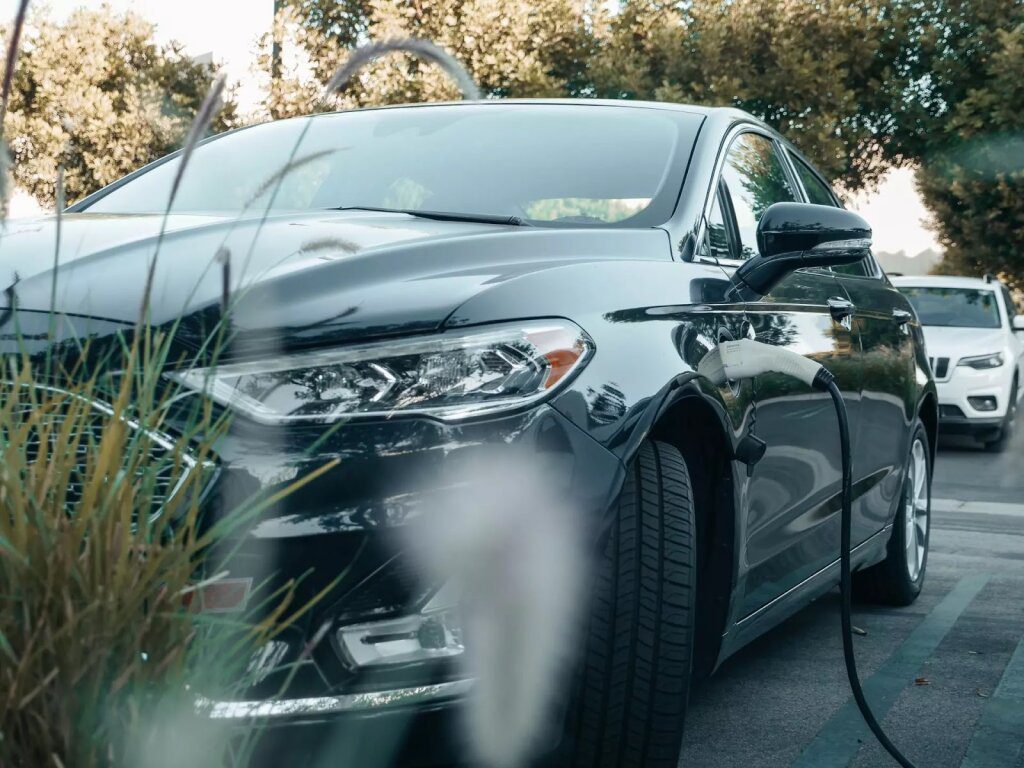The modern environmental movement dates to the late 1960s, when the effects of pollution led to the first research predicting melting ice caps and the first use of satellites to measure the earth’s temperature. Environmentalism suddenly became a mass movement that worked its way into popular culture, exemplified by songs like Joni Mitchell’s “Big Yellow Taxi,” which famously proclaimed: “They paved paradise and put up a parking lot.”
Since then, parking lots have not gotten a lot of love from environmentalists. According to data from Strong Towns, a nonprofit advocacy organization, huge tracts of land have been cleared to accommodate parking facilities — more than 5% of all urban acreage in the U.S. These facilities also exist solely to accommodate passenger vehicles, which contribute roughly one-fifth of global carbon dioxide emissions.

But just as the electric vehicle (EV) transition aims to cut the carbon footprint of cars, a similar green movement is pushing to do the same for parking lots.
The parking and mobility industry has seen a recent spike in demand for green spaces as businesses and consumers strive to operate more sustainably. This ask has led to the adoption of eco-friendly designs and features. One of the companies leading the movement is FLASH, an Austin, TX-based parking technology platform that provides both digital and physical infrastructure.
In a blog on its website, FLASH laid out numerous initiatives that can contribute to green parking. These include transitioning to more efficient building materials, making greater use of smart technologies, and introducing permeable or semipermeable materials such as grass and natural stone pavers that improve stormwater collection and purification.
FLASH’s mission includes increasing mobile reservations and digital payments to reduce paper tickets and conserve resources. The startup also plans to expand the number of charging stations at parking lots as a catalyst for wider EV adoption.

For parking operators, these innovations can also lead to higher profits by attracting more customers and reducing labor, materials, and other costs.
FLASH claims to be the only global platform that connects cloud parking software to EV charging and the broader mobility transformation. CEO Dan Sharplin told Green Biz in a recent interview that the firm has about 100 Level 2 charging stations nationwide, with more on the way.
The company is focusing on markets such as Austin, Chicago, New York, San Francisco, Seattle, and Washington, D.C. It owns the ParkWhiz and BestParking apps, which are used to innovate its EV charging ideas.
“FLASH is essentially the operating system technology layer that connects everything having to do with paid parking, with all users that want to access that,” Sharplin said.
One part of the company’s business focuses on equipment such as “kiosks that make parking lot gates go up and down, point-of-sale systems”, cameras that identify cars, and credentialing and payment systems. Another part is devoted to apps and other digital technology.

According to Sharplin, FLASH focuses largely on Level 2 charging in the market, although it also dabbles in Level 3. The company looks to expand its business by building relationships with landowners and parking lot operators in key markets.
“So, if you drive an EV and you reserve one of our chargers, you can make that reservation 30 seconds or 30 days before you drive in,” Sharplin said. “Once you reserve a charger, you’re going to get exactly that. We’re the only company that can guarantee that type of service level because we manage the inventory with the point of sale, and we have enforcement mechanisms.”
FLASH launched its EV-powering solution in September 2022 to meet the growing demand for urban charging and also address infrastructure challenges. Among other things, the technology is designed to support complex and dynamic pricing capabilities.
“Parking and charging are the anchors of the mobility hub and crucial to a seamless customer journey. However, urban EV charging requires a fundamentally different solution than the suburban or highway model,” said Ben Davee, general manager of FLASH’s Electric Vehicle Charging Division, in a press release following the launch. “We built our reservable EV charging solution with commuters, multi-family residents, and fleet drivers in mind.”





